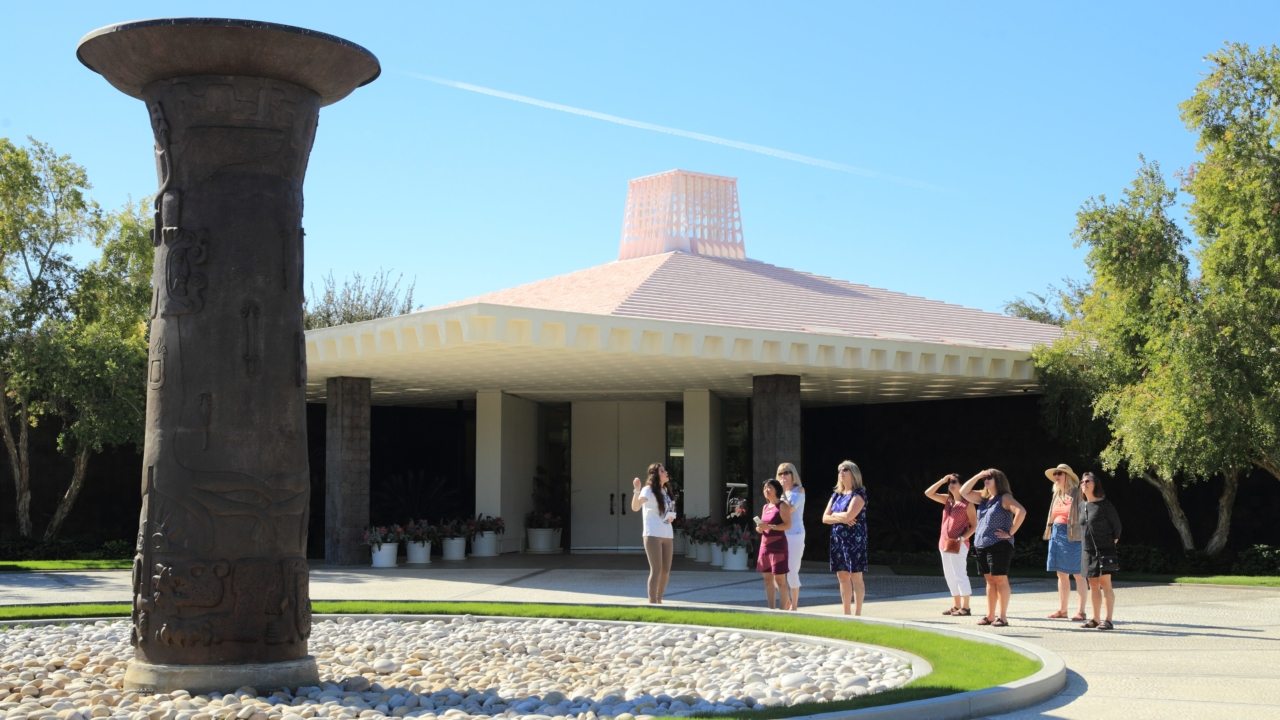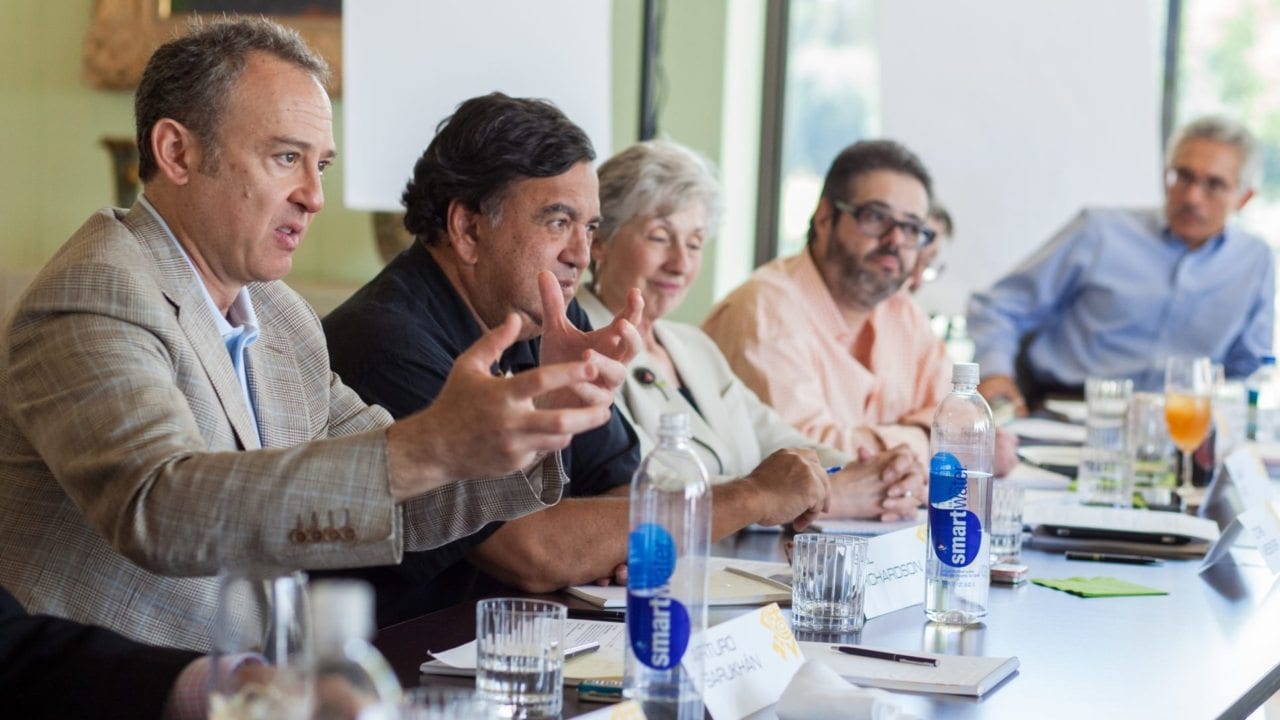Sunnylands events put presidential transitions and foreign policy on stage at national political conventions

Either Hillary Clinton or Donald Trump will take command of the Oval Office in January. How does one get a new presidency off to a running start? Should the nation’s leader fashion his or her management style after those of business leaders?
Those were the questions explored at a pair of policy discussions that The Annenberg Retreat at Sunnylands, Fortune magazine, and the University of Virginia’s Miller Center co-hosted during the national political conventions in July. Republicans nominated Trump for president in Cleveland, Ohio, while Democrats chose Clinton as their standard bearer in Philadelphia.
At the Ritz-Carlton hotel in each city, a panel of White House veterans, presidential scholars and noted journalists convened before a live audience to address the topic, “What CEO transitions can – and cannot – teach the next administration.”
The panels marked Sunnylands’ second effort to heighten civic engagement through policy discussions during the presidential nominating conventions. In 2012, Sunnylands teamed with the Woodrow Wilson Center to explore the future of U.S.-Mexico relations during the Democratic National Convention in Charlotte, N.C., and the Republican National Convention in Tampa, Fla.
Expert advice on presidential transitions
At the Cleveland event, Haley Barbour, the former Mississippi governor and Republican National Committee chairman, said a new president from the business world, like Trump, might experience “culture shock” at having to get buy-in from people not under his control – such as members of Congress, mayors, and business leaders – to advance his agenda.
U.S. Sen. Bob Corker, R-Tenn., who ran a successful construction company, said he found public service to be a broadening experience as he transitioned from the private sector. The range of issues one encounters in public office is vast, he said.
Drew Erdmann, a partner at McKinsey & Company, said the firm’s research showed that a new president needs to act quickly to set his or her agenda, establish an operating model, build a cohesive team and, most importantly, prepare to be resilient.
Clay Johnson, chief of personnel for President George W. Bush, said it’s important to put the president’s top management team in place quickly, and then aim for a few key legislative or foreign policy victories. Fortune magazine Senior Editor Dan Primack moderated the panel on July 19.
Seven days later in Philadelphia, a new panel moderated by Fortune editor-in-chief Alan Murray addressed the topic and touched on similar themes.
Vivan Riefberg, a senior partner at McKinsey, flatly said the presidency “is not like being the CEO of a company – it is vastly bigger.” The president’s portfolio is literally “the world,” she said, noting that the commander-in-chief oversees two million federal workers and 4,000 political appointees.
Others on the panel included Robert Rubin, the former Treasury Secretary and Director of the White House National Economic Council; Chris Lu, Deputy Secretary at the Labor Department and President Obama’s former Cabinet Secretary; and Sid Milkis, a professor of presidential politics at the Miller Center.
Speaking from his experience in 2008, Lu said the Trump and Clinton campaigns should be making plans for their presidency now, even before it’s decided who will take the White House. “Start early and expect the unexpected,” he said.
It’s important the president appoint people who won’t shy away from speaking up when they disagree with him, said Rubin. He also said the president should look for ways to work with the opposing party in Congress.
Sunnylands also sponsored programs – organized by the U.S. State Department and convention planners – for the hundreds of foreign ambassadors and other dignitaries who were in Cleveland and Philadelphia to observe the conventions.
In Cleveland, working with Global Partners in Diplomacy, Sunnylands offered the world’s diplomatic corps a unique perspective on the presidency. Tweed Roosevelt, the great-grandson of President Theodore Roosevelt; David Eisenhower, the grandson of President Dwight Eisenhower; and Jack Ford, the son of President Gerald Ford came together at Case Western Reserve University to discuss the virtues and hazards of belonging to a White House family.
David Eisenhower, for whom the Camp David retreat in Maryland is named, is now a presidential historian at the University of Pennsylvania. He recalled being in the presence of world leaders such as Winston Churchill in his youth. “You have these priceless experiences. You recognize that this is not to be repeated,” he said.
In Philadelphia, Sunnylands sponsored the National Democratic Institute’s panel, U.S. Foreign Policy in 2017 and Beyond, that starred former Secretary of State Madeleine Albright. Among others, she was joined by Lisa Rosenberger, foreign policy advisor to the Clinton campaign; U.S. Sen. Jeanne Shaheen, D-New Hampshire; and Rep. Ted Deutch, D-Florida, who serves on the House Foreign Affairs Committee.
Albright said she has “four D’s” of international relations – diplomacy, development, defense, and democracy – that combine for an effective U.S. foreign policy.
The idea of comparing CEO and presidential transitions sprang from the Miller Center’s “First Year” project, a study of the importance of the first 365 days of a new administration. At the behest of the Miller Center, McKinsey & Company, the worldwide management consulting firm, wrote an essay on the topic that drew on the insights of chief executive officers of national corporations.
“While not all lessons from the private sector are transferrable to the public sector, and many successful business leaders find their skills challenged in the unique government environment, there are nevertheless lessons for this transition period that CEOs can offer the next president and other new senior leaders entering the government,” the McKinsey team wrote.



